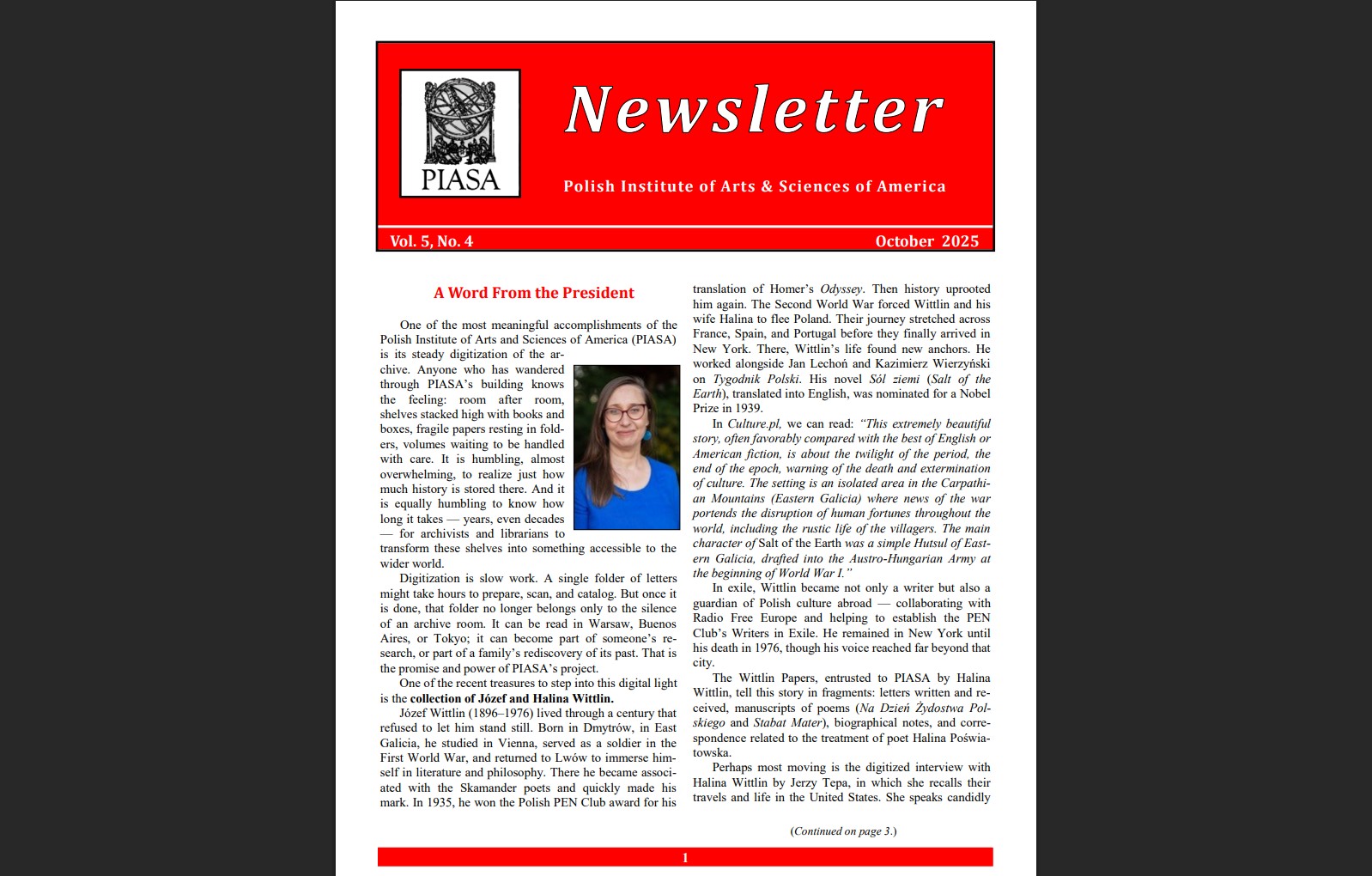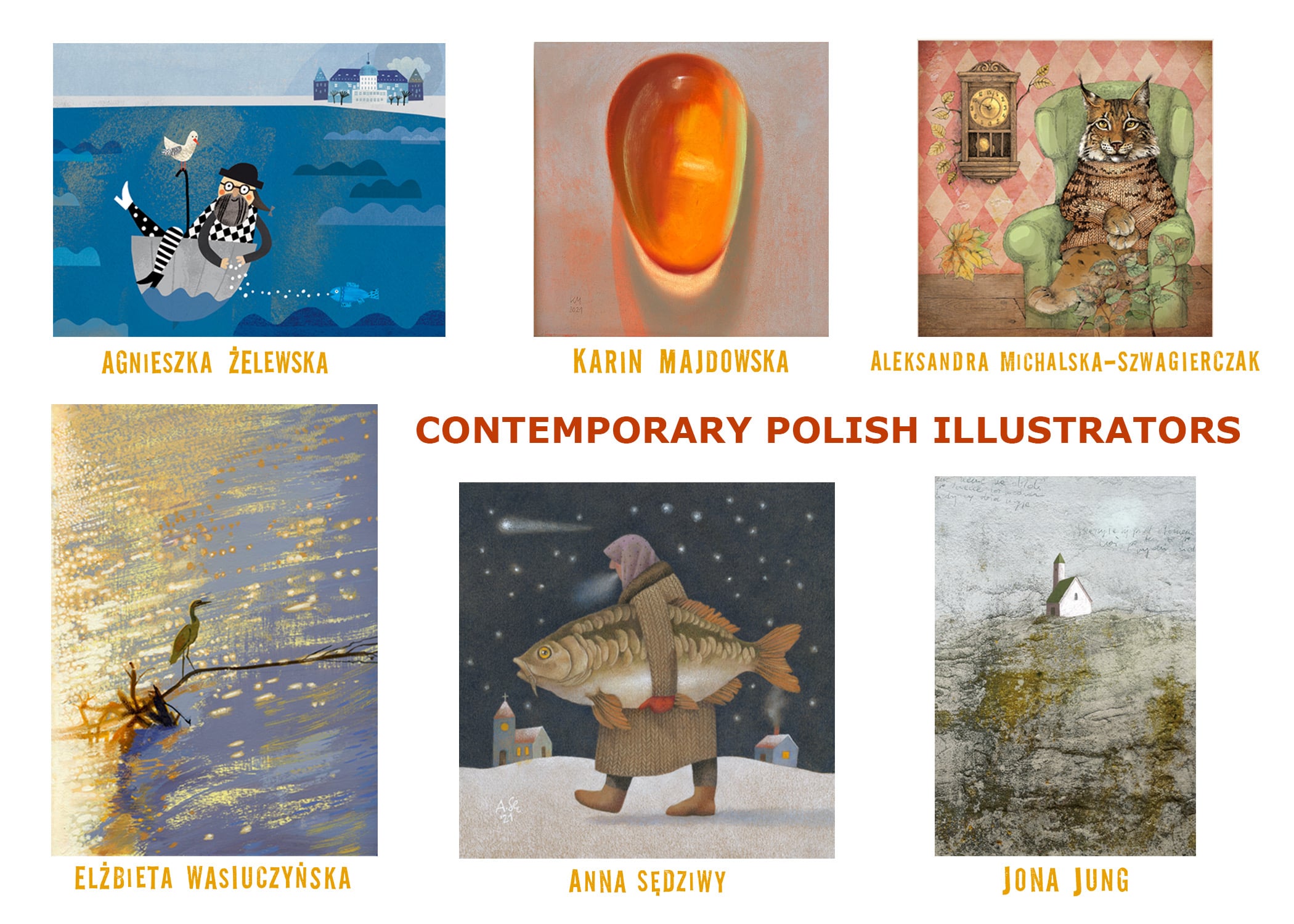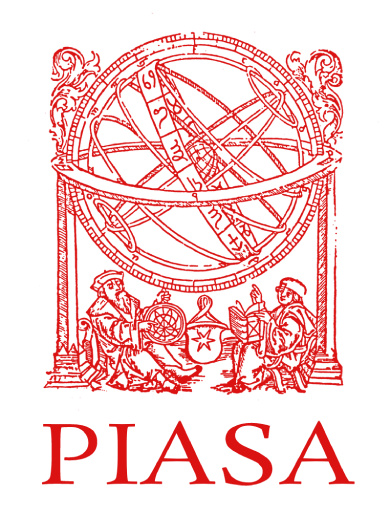Newsletter Vol. 4, No. 4 October 2024
A Word From the President
A Word From the President Warmest greetings to all our readers from balmy Michigan.
Earlier today, I read a message from a friend on Facebook that reminded me of my childhood in Poland: The summer is ending, and fall begins. The accompanying image shows dried mushrooms and jars of fruits and vegetables covering kitchen counters. This time of year, the rhythm of the day shifts from wandering paths to hearthside plans. Yet, the focus on community and planning remains as important as ever.
With the arrival of fall, PIASA also transitions into a new rhythm. What better symbolizes this than this newsletter generously edited by Jim Pula, who regularly reaches out to many of us, asking for updates, reminding us of deadlines, and holding us accountable for the projects and plans we’ve undertaken. At the same time, Jim gives us the space to celebrate our accomplishments and reflect on where we’ve been and where we are going. Similarly to him, Renata Vickrey, our institutional historian, makes sure our meetings are recorded.
We return to some of our long-standing commitments, most notably our annual conference, which is set to thrive under the outstanding leadership of Patrice Dabrowski, Neal Pease, and Bożena Leven. The conference will be held at Columbia University in New York City from June 6–8, 2025. Anna Frajlich, Eve Krzyzanowski, and Alicja Brzyska are working to ensure that all participants feel welcomed to the city with a rich history of Polish involvement. This year’s theme, Democracy and Its Discontents, keeps us grounded in the past while signaling the potential changes that the fundamental right of democracy— elections—will bring, both in the United States and in Poland, within the coming year.
Since research is at the heart of our work, we remain committed to several core initiatives that highlight excellence in Polish studies across disciplines. One of these is the PIASA awards, which bring outstanding scholarship to the attention of our members, affiliates, and friends—a task Bob Blobaum continues to lead with dedication and the help of the Board members. Another key commitment is The Polish Review, which, under the stellar leadership of Halina Filipowicz, continues to grow. Thanks to the wonderful contributions of the PIASA community and scholars from around the world, the journal thrives, reflecting the collective dedication and intellectual strength of our network. Bob Blobaum, Włodek Mandecki, and I are also working on widening the spaces of involvement by planning new webinars, including a series on PIASA scientists, which we hope to inaugurate this fall.
We continue publishing books that highlight the voices of distinguished scholars, offer new perspectives on Polish culture, and present important translations. Most recently, PIASA published The Short Story in a Polish Context: Classic Short Fiction from the Seventeenth to Twentieth Centuries, edited by Oscar E. Swan. This anthology contains selections from the Polish short-story canon, showcasing how the genre evolved in Poland throughout the ages.
Steady work continues at our PIASA headquarters in New York, where Bożena Leven (with the help of Krzysztof Blendowski), and a dedicated team—including Mariusz Bargielski, Joanna Mróz, and archivists from Poland—carry out a wide range of tasks. They care for, preserve, and organize the building and the treasures it holds, handling both the most mundane and the most important duties. From addressing the roof that needs repair, to ensuring we receive communication from PIASA, to restoring documents and artwork, and organizing events that bring many of us together for lectures and gatherings. They ensure that the place that for decades has represented for many their home remains stable, protected, and loved. This is where we return, regardless of the seasons.
― Anna Müller, PIASA President
Other News
2025 PIASA Award Recipients
•
February 11, 2026
Newsletter Vol. 6, No. 1 January 2026
•
December 30, 2025
CONTEMPORARY POLISH ILUSTATORS – Art Exhibition
•
November 12, 2025
Newsletter Vol. 5, No. 4 October 2025
•
September 26, 2025
Get Connected




